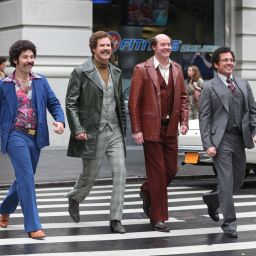OMG Shawn Gold: are you single?
I’m kidding. Kinda. But I am still extremely jealous of everyone who got to attend the Mediabistro Circus and to hear this little gem from the former MySpace exec:
When it comes to the old model of disseminating media in a one-way stream, “There’s some Uncle Milty shit going down right there.”
Classic television reference! Hot! What I would not give to drop that in a meeting sometime. You see, even though my job description says I work with social media, there are times where I am personally frustrated by the general lack of understanding about how the process of how social media works. Social media is dependent upon multi-directional communication, that your audience gives back more than just personal data or content to exploit, but that they are engaged enough to help build the content and community that will bring them back.
Professional communicators are not used to this. Journalists are used to telling their stories, informing the public and filtering any direct response through a letter to the editor or ombudsman (if they work at a place lucky enough to have them.) Professional marketers are used to sending out a message and measuring the success of that message through sales.
But that’s not the end game of social media. Social media forces professional communicators to reconsider the way we do our jobs, the success of social media is dependent upon some level of audience trust; trust that they are engaged enough, loyal enough, interested enough to participate. And that requires transparency, the willingness to expect public feedback and criticism, to communicate honestly to your audience, to admit faults and lack of omniscience. To put content out there and trust the fact that you won’t have complete control over how/where/when/why it’s consumed or used.
That goes against what most professional communicators have been trained for.
In the past few years I have worked for/with a number of companies/organizations that have expressed an interest in using social media for marketing purposes.
I have yet to work at a place that does it well.
This is primarily because of lack of trust, and a general lack of understanding about the multidirectional communication that is the bedrock of social media’s success. It’s not just communications professionals though, some of the hard-core IT/Web geeks I know aren’t necessarily plugged into social networking on a contextual level.
I don’t think we will see traditional communications organizations truly adapt to social media and use it to the best of its potential until current media professionals retire.
Gold really breaks down why:
“The Internet generation has grown up sharing their lives,” he said. “They’re aware of privacy, they’re aware that anything they say can be used against them, but they somehow don’t mind. Their lives are more scheduled and structured than ever before,” making them the model for using social media to connect more, quicker, and better than older generations. “They’re so limited in time, social media lets them efficiently connect.”



